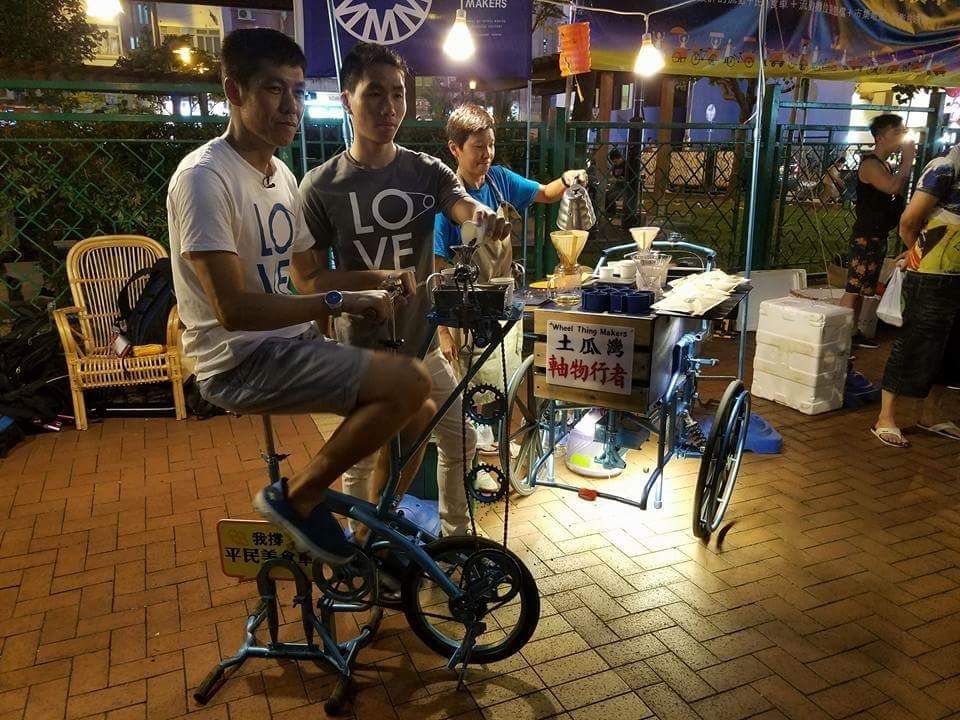"Maker" Culture in Hong Kong
foreword
In the 1960s and 1970s, the manufacturing industry in Hong Kong experienced a glorious period. However, in the 1980s and 1990s, as factories moved north to mainland China, Hong Kong's industry declined, many skilled workers became heroes and useless, and Hong Kong's industries and types of work became more and more single. When I first came into the maker space, I had a hope of reviving the manufacturing industry in Hong Kong. However, after visiting local maker organizations and teams, I found that my thinking was too naive. The northward shift of industry is a reality that has already happened and is irreversible. It is impossible to change this big environment by relying solely on small organizations and teams spontaneously organized by the people. But beyond the framework of reviving Hong Kong's manufacturing industry, there are more possibilities to be explored. Below is a little bit of inspiration from visiting these maker organizations.
------------------------
Makers are a force for change
First of all, the new generation of Hong Kong makers do not pursue the simple reappearance of "Made in Hong Kong", but want to connect with the current society through craftsmanship and solve current problems. I visited an organization called Axis Walkers. They rented a one-story industrial building in To Kwa Wan, and on the other hand, they took on some work to make trolleys, bicycles and other machines to keep the organization running, and on the other hand, they also used the most easily found waste in the community, such as car tires, to make other items. For example, tire bonsai can reduce the overall cost of the community (Note: There are many garages in To Kwa Wan, and exhaust tires can be seen everywhere). One of the founders of this organization also had a very legendary story! It is said that he is a bicycle enthusiast and likes to make all kinds of bicycles. He once built an electric bicycle, but as soon as it landed on the road, he was arrested by the police. It is said that the road laws in Hong Kong are mainly designed for automobiles and do not consider means of transportation such as electric bicycles. Therefore, the police will arrest the person concerned when they see a walking object not covered by the law driving on the road. After this happened, the cycling enthusiast's old classmates approached him, and the two eventually founded Axlewalker, and the cycling fan continued to use his skills to the fullest. The above-mentioned incident is precisely because he used his skills in making bicycles to reveal the imperfection of Hong Kong's road regulations.
------------------
Makers may also be the glue of the community
In addition to using handicrafts to achieve environmental goals and revealing the inadequacy of current legislation, Hong Kong makers also use their own handicrafts to connect with the community. For example, as a part of the To Kwa Wan community, the Axis Walkers introduced above also need to connect with the neighborhood in the local area. The tire bonsai they make is not only used to decorate public spaces in the community, but also given to interested neighbors. They also made an eco-friendly exercise bike. Electricity is generated by stepping on a bicycle, which is used to make coffee. When they showed this bicycle in the community, the "turning rate" (the probability of looking back at the bicycle" of the neighbors was quite high. In this way, the box of talking with the neighbors was easy to open. In recent years, due to the completion of a large number of new housing estates in Hong Kong, The gated community is becoming more and more mainstream. There is little communication between neighbors. Using craftsmanship to make novel and interesting Eslite products is a good icebreaker.
--------------------
Makers intervene in students' learning and help students to live and learn
In recent years, education in Hong Kong has begun to pay attention to the knowledge of science, engineering and mathematics in students, that is, the cultivation of STEM. The practice of makers has also become a help for students to learn STEM knowledge. The Axis Walker cooperates with primary and secondary schools to teach students crafts in schools. Through the production process, the students understand the laws and principles of science and engineering from practice. I visited a primary school in Wong Tai Sin four years ago and interviewed them about the learning outcomes of their self-directed project over the past year. One group of students just wanted to learn to be a maker, and they found Axial Walker and taught them to make a canoe out of a large drawer of exhaust gas. On the day of my interview, it was the launching ceremony of the canoe!
-------------------
Epilogue
Hong Kong's industry has dwindled as factories moved north. The maker culture has taken root and grown in Hong Kong, and it is impossible to turn the time back to the 1960s and 1970s when factories were plentiful and labor-intensive. From another point of view, the return to factories and the labor-intensive era is outdated. On the contrary, by utilizing the skills of makers to connect with the current society, solve real problems, or through the professional skills of social design, to produce the products that people in this era need, are the elements for the growth of the maker culture. And I believe that a maker culture that can connect with the current society is also a force that cannot be ignored in social reform.

Like my work? Don't forget to support and clap, let me know that you are with me on the road of creation. Keep this enthusiasm together!





- Author
- More